
Mars is the first full-length studio album released by Japanese solo artist Gackt. It was released on April 26, 2000.

"No ni Saku Hana no Yō ni" (野に咲く花のように) is a single released by Gackt on February 7, 2007 under Nippon Crown. It peaked at third place on the Oricon weekly chart and charted for eleven weeks.

"Metamorphoze" is a single released by Gackt on May 25, 2005 under Nippon Crown. It peaked at second place on the Oricon weekly chart and charted for thirteen weeks. In 2005, it was the 62nd best selling single of the year, with sales of 156,709 copies, making it to be Gackt's fourth best selling single. Both, A-side and B-side are also featured in the Mobile Suit Zeta Gundam movie Heir to the Stars. The music video combines footage from the anime with live-action sequences of Gackt piloting in a UC 0093 spacesuit and linear seat. It was certified gold by RIAJ.
Nippon Crown Co., Ltd. is a Japanese record label established as Crown Records on 6 September 1963. It is a spin-off of Nippon Columbia and is owned by karaoke maker Daiichikosho. The record label singles which topped the Oricon Singles Chart are Kaze's "22-Sai no Wakare" (1975), and Gackt's "Returner " (2007).

"Oasis" is a single released by Gackt on February 16, 2000 under Nippon Crown. It peaked at seventh place on the Oricon weekly chart and charted for six weeks. It is Gackt's seventh best selling single, with 126,280 copies sold. The song "Oasis" was used as the ending theme for the New Fist of the North Star OVA in 2003, and released along "Lu:na" as a single "Lu:na/Oasis" the same year.

"Seki-Ray" is a single released by Gackt on March 8, 2000, under Nippon Crown. It peaked at seventh place on the Oricon weekly chart and charted for six weeks.

"Saikai (Story)" (再会〜Story〜) is a single released by Gackt on August 30, 2000 under Nippon Crown. "Saikai ~Story~" is a re-recording of the mostly instrumental song from the extended play Mizérable (titled "Story"). It peaked at seventh place on the Oricon weekly chart and charted for six weeks. The song is used as the ending theme of the TV variety show Hot Pants (ホットパンツ).

"Todokanai Ai to Shitteita no ni Osaekirezu ni Aishitsuzuketa..." is a single released by Gackt on August 10, 2005 under Nippon Crown. It peaked at third place on the Oricon weekly chart and charted for nine weeks. It was used as a theme song for the TV drama Keiyaku Kekkon (契約結婚). It was certified gold by RIAJ.
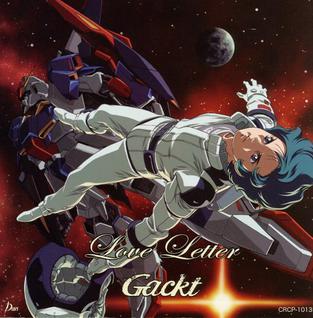
"Love Letter" is a single released by Gackt on March 1, 2006 under Nippon Crown. It peaked at ninth place on the Oricon weekly chart and charted for seven weeks. The A-side and B-side were used in the Mobile Suit Zeta Gundam movie Love is the Pulse of the Stars, as opening and ending themes, respectively. "Dybbuk" also previously appeared on Gackt's 2003 album Crescent. It was certified gold by RIAJ.

"Secret Garden" is a single released by Gackt on November 16, 2000 under Nippon Crown. It peaked at tenth place on the Oricon weekly chart and charted for five weeks.
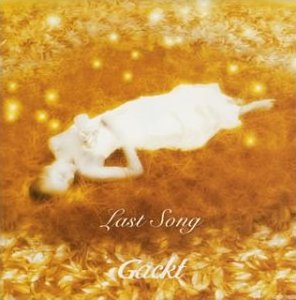
"Last Song" is a single released by Gackt on November 12, 2003 under Nippon Crown. It peaked at fifth place on the Oricon weekly chart and charted for 13 weeks. It was certified gold by RIAJ. An unplugged piano-only version was recorded, and music video filmed, for The Seventh Night: Unplugged.
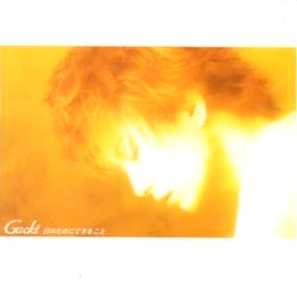
"Kimi no Tame ni Dekiru Koto" is a single released by Gackt on March 14, 2001, under Nippon Crown. It peaked at sixth place on the Oricon weekly chart and charted for eighteen weeks. It is Gackt's fifth best selling single, with 146,770 copies sold. The title track was later covered as an acoustic track for Gackt's Seventh Night album in 2004.

"Kimi ga Oikaketa Yume" (君が追いかけた夢) is a single released by Gackt on March 19, 2003 under Nippon Crown. It peaked at second place on the Oricon weekly chart and charted for ten weeks. It was certified gold by RIAJ.

"Black Stone" is a single released by Gackt on April 27, 2005 under Nippon Crown. It peaked at third place on the Oricon weekly chart and charted for seven weeks. It was certified gold by RIAJ.

"Lu:na/Oasis" is a single released by Gackt on June 30, 2003 under Nippon Crown. Both songs are themes for the anime OVA New Fist of the North Star. The single peaked at fifth place on the Oricon weekly chart and charted for five weeks.
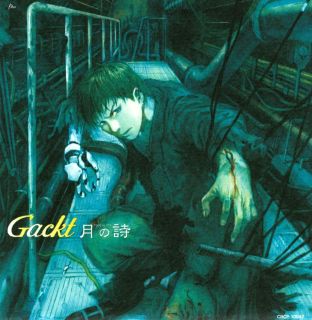
"Tsuki no Uta" (月の詩) is a single released by Gackt on June 11, 2003 under Nippon Crown. It peaked at third place on the Oricon weekly chart and charted for seven weeks. The song "Tsuki no Uta" was used as the first ending theme for anime Texhnolyze. It was certified gold by RIAJ.

"Arittake no Ai de" (ありったけの愛で) is a single released by Gackt on January 26, 2005 under Nippon Crown. It peaked at seventh place on the Oricon weekly chart and charted for seven weeks.

"Kimi ni Aitakute" (君に逢いたくて) is a single released by Gackt on October 27, 2004 under Nippon Crown. It peaked at second place on the Oricon weekly chart and charted for seventeen weeks. In 2004, it was the 96th best selling single of the year, with sales of 98,335 copies. It ultimately sold 124,280 copies, making it Gackt's ninth best selling single. It was certified gold by RIAJ.
"Remix of Gackt" is an unofficial remix single of Gackt songs released on November 3, 1999. The single includes 4 tracks consistent of "Mizérable" and "Vanilla," remixed by 4 different DJs. It peaked at thirteenth place on the Oricon weekly chart and charted for four weeks.
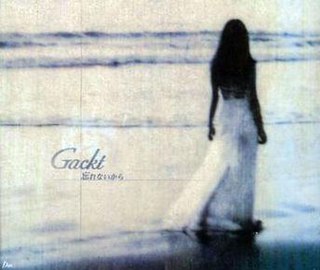
"Wasurenai Kara" (忘れないから) is the eleventh single by Japanese artist Gackt. It was released on April 24, 2002 under Nippon Crown. It peaked at fourth place on the Oricon weekly chart and charted for five weeks. In 2002, it was the 98th best-selling single, with sales of 132,260 copies, making it Gackt's sixth best selling single.

















